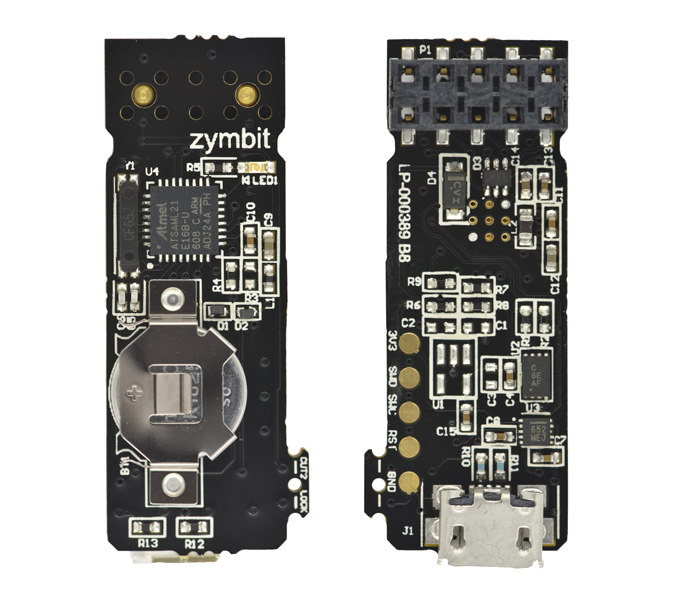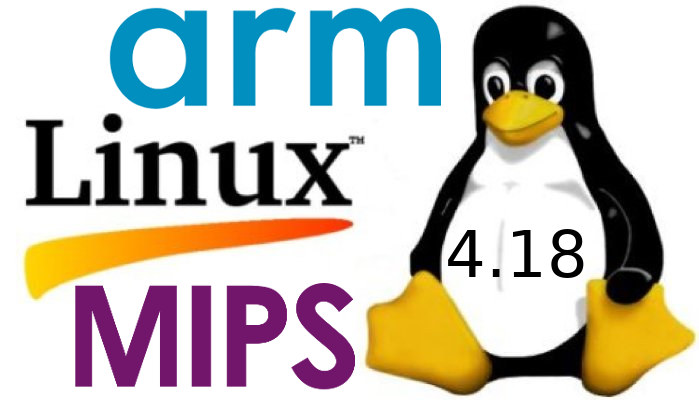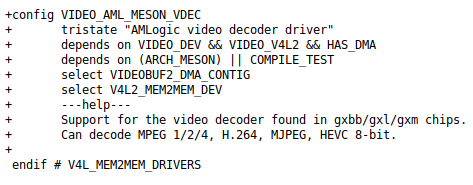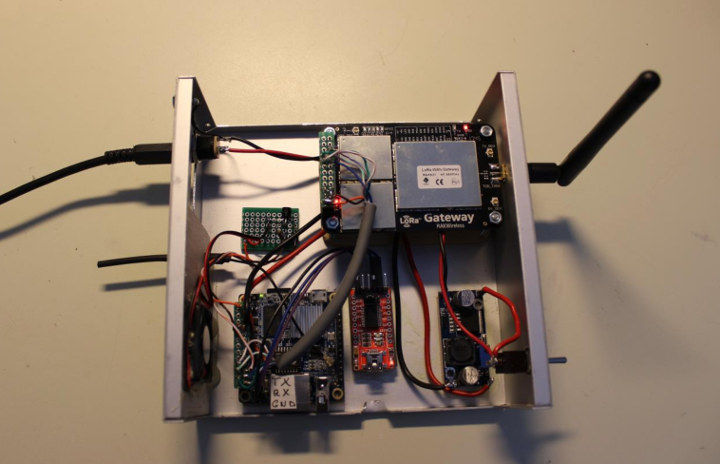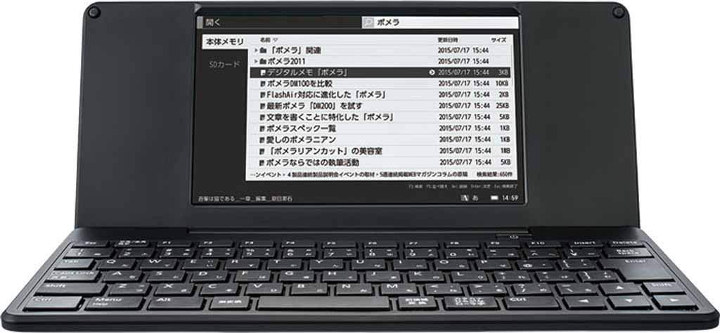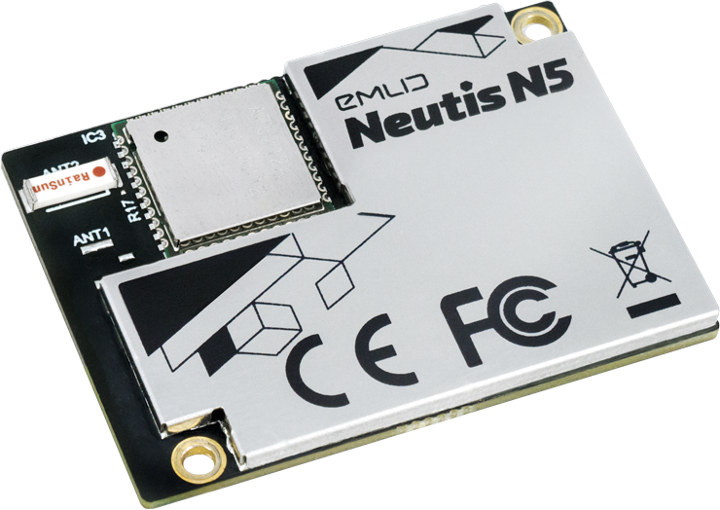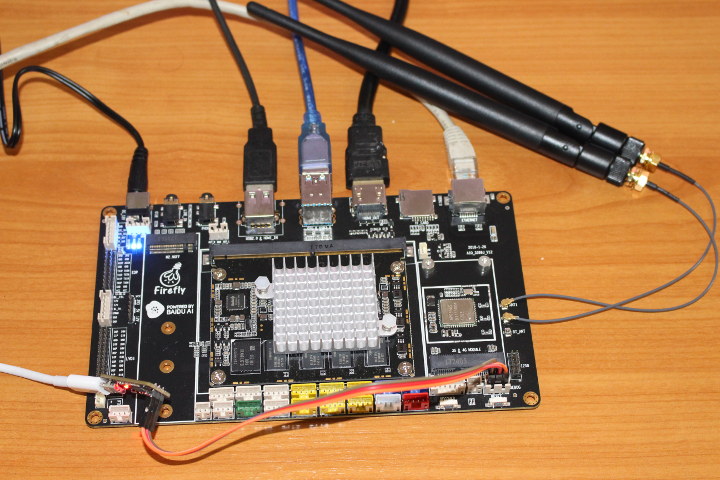Microchip ATECC508A CryptoAuthentication chip appears to be a popular way to add hardware encryption support to development boards, as we’ve seen previously with 96Boards’ Secure96 mezzanine or LoRa explorer kit, and even just earlier today with Analoglamb Fish32 Seed ESP32 education board. Another solution is from Zymbit which provides Zymkey security modules for Raspberry Pi based on the ATECC508A CryptoAuthentication chip in different form factor: either a USB stick, an I2C module, or for further integration into your own design, an SMT component. Zymkey enables multifactor device ID & authentication, data encryption & signing, key storage & generation, and physical tamper detection. It also features a secure element root of trust, a real-time clock, and a true random number generator (TRNG). The company provides a simple Python or C/C++ API to make it easier to add Zymkey support to any Linux application, and the secure module can be integrated with […]
More Speculative Execution Exploits – Meet Foreshadow / L1 Terminal Fault
Speculative execution is a feature to speed up performance of recent processors which works by predicting and loading likely future instructions ahead of time. The features became somewhat famous a few months ago with Meltdown and Spectre vulnerabilities exploiting the features. The exploits impact Intel, AMD, Arm, and other processors to various degrees, and since the feature is built-in into the hardware, there’s no easy fix, and instead operating systems vendors, cloud service providers, hosting services and other stakeholders implemented mitigations. While a lot of progress has been made, work is still going on with the just released Linux 4.18 still getting some code changes related to the exploits. But just as solutions were found for Spectre and Meltdown, a new speculative execution exploitation has raised its ugly head: L1 Terminal Fault also known as Foreshadow. The new flaw appears to be just as serious, and a dedicated website has […]
Linux 4.18 Release – Main Changes, Arm and MIPS Architecture
Linus Torvalds has just announced the release of Linux 4.18: One week late(r) and here we are – 4.18 is out there. It was a very calm week, and arguably I could just have released on schedule last week, but we did have some minor updates. Mostly networking, but some vfs race fixes (mentioned in the rc8 announment as “pending”) and a couple of driver fixes (scsi, networking, i2c). Some other minor random things (arm crypto fix, parisc memory ordering fix). Shortlog appended for the (few) details. Some of these I was almost ready to just delay to until the next merge window, but they were marked for stable anyway, so it would just have caused more backporting. The vfs fixes are for old races that are really hard to hit (which is obviously why they are old and weren’t noticed earlier). Some of them _have_ been seen in real […]
Amlogic Open Source Video Decoder Driver Coming Soon for S905, S905X and S912 Processors
Allwinner processors aren’t the only ones getting an open source hardware video decoding / encoding support in Linux, as Maxim Jourdan recently submitted a patchset to Amlogic Linux mailing list adding a video decoder driver to some Amlogic processors. The driver is written around the V4L2 M2M framework and currently supports MPEG 1/2/4, H.263, H.264, MJPEG, and (partially) HEVC 8-bit codecs. The driver has been tested with FFmpeg, GStreamer, and Kodi, and currently works on S905 (Meson GXBB), S905X/W/D (Meson GXL), and S912 (Meson GXM) processors. Those processors also support HEVC 10-bit, VP9, and VC1 codecs, and while those are implemented yet, they should be in the future. A separate commit adds support for “Overlay plane for video rendering” which support various YUV layouts and a non-alpha RGB32 layout, and will be useful for Kodi and LibreELEC ports. I came to learn about those two patchsets thanks to Neil Armtrong […]
How to Build an Orange Pi Zero LoRa Gateway
LoRa gateways tend to be fairly expensive, especially because of the radio part, but anything that may help lower the cost is probably welcomed. And one way to to do that is to use dirt cheap boards like Orange Pi Zero as Edzelf did, by combining the low cost Arm Linux board ($15 shipped) with Rak wireless RAK831 concentrator module kit ($143) via a custom cable, and a power supply board. All assembled into a metal case. RAK831 communicates with Orange Pi Zero over an SPI connection. While some other Orange Pi boards are suitable for the project, note that Orange Pi Zero Plus lacks a spare SPI interface, and can’t be used with this particular application. A fan was also added for cooling, a well as a USB serial debug board for debugging purpose, but it can be removed once the gateway is in the field. Software-wise, Edzelf installed […]
KINGJIM Pomera DM200 Rockchip RK3128 Portable Mini Computer Can Run Debian
Ultra mobile portable computers (UMPC) are somewhat making a come back with products such as GPD Pocket 2 or DragonBox Pyra open source handheld computer. While being fairly powerful, neither devices are particularly inexpensive, and if you are looking for something cheaper, and admittedly much slower, I’ve been informed that Rockchip RK3128 based KINGJIM Pomera DM200 mini computer can be an option since it has been “hacked” to run Debian. By default, the device runs a Linux OS with user interface in Japanese only, and is sold as a digital memo. Some of the specifications include: SoC – Rockchip RK3128 quad core Cortex A7 processor with Mali-400MP2 GPU System Memory – 512MB RAM Storage – 4GB flash, micro SD slot up to 32GB Display – 7″ TFT LCD display with WSVGA (1024 x 600) resolution Connectivity – WiFi 802.11 b/g/n + Bluetooth 4.0 LE + EDR Keyboard – Japanese keyboard […]
Neutis N5 Allwinner H5 CPU Module and Development Kit are now up for pre-order
Emlid Neutis N5 system-on-module (SoM) powered by Allwinner H5 processor was unveiled right before Embedded World 2018 in February with an expected launch date scheduled for April. There have been some delays but the Allwinner H5 CPU module and corresponding development kit are now up for pre-order with delivery slate for the end of August. Neutis N5 SoM Neutis N5 specifications: SoC – Allwinner H5 quad core Arm Cortex-A53 processor @ up to 1.3 GHz with Arm Mali-450MP4 GPU System Memory – 512 MB DDR3 RAM Storage – 8 GB eMMC flash Connectivity – Wi-Fi 802.11 b/g/n. Bluetooth 4.0 dual-mode BLE with on-board antenna and u.FL connector for optional external antenna HW Security – Tamper-resistant dedicated crypto chip (secure element) for storing cryptographic keys, unique ID, random number generation and more 2x DF40 80-pin board to board X1 and X2 connectors with 38x GPIOs 4x UART, 3x I2C, 2x SPI, […]
AIO-3399J Development Board Review with Ubuntu 16.04
Regular readers will know that Firefly team sent me several of their Rockchip boards for evaluation, and I started with a review of ROC-RK3328-CC development board powered by Rockchip RK3328 processor. This time, I went with the high-end AIO-3399J board comprised of a features-packed baseboard and a Rockchip RK3399 system-on-module. Just like with the previous review, I’ve decided to focus on Linux support, in this case Xunbuntu 16.04, and I’ll do an Android review on the company releases Android 8.1 for Firefly-RK3399 board. First Boot with AIO-3399J Board Before booting the board, I inserted the heatsink, and connected the provided WiFi antennas. I also connected some devices and cables, including a mouse, the male to male USB cable to the top USB 3.0 (OTG) port for firmware update, a HDMI cable to my TV, and Ethernet cable, as well as the serial debug board. The final step was to connect […]


